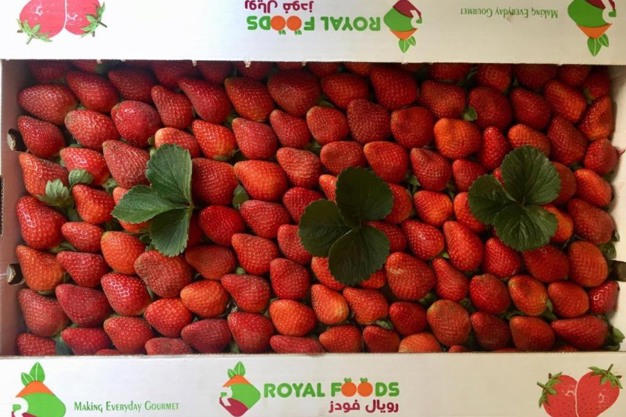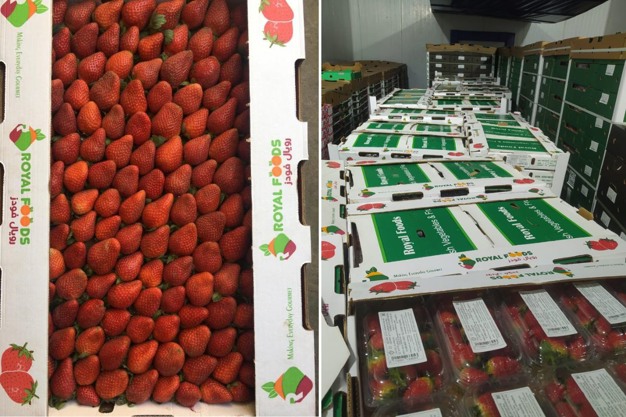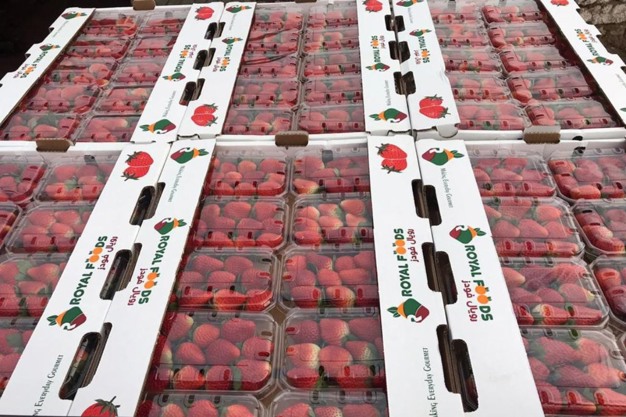The Egyptian strawberry season continues with frozen strawberries following the end of the fresh strawberry campaign in February. According to Nevenka Škorić, a food consultant in the MENA region specializing in sourcing Egyptian products, the Egyptian strawberry industry has demonstrated remarkable resilience this season despite major challenges.

Nevenka reports an exceptional season, given the difficulties. She says: "The fresh Egyptian strawberry season is over, and our farmers are working fast on freezing. Despite the global and regional challenges that have significantly affected supply chains this season, the strawberry sector has not suffered a decline, like most Egyptian exports, for that matter. Inflation, currency devaluation, the Red Sea crisis, uncertainty, and the precariousness of business are all factors with which even the strongest economies have to contend. Despite the difficulties, in the first three months of 2024 alone, Egypt exported 2.2 million tonnes of crops worth 1.5 billion dollars, comprising 400 agricultural products, to 160 countries. Strawberries accounted for just under 20 thousand tonnes during this period. In fact, strawberries are one of the top 3 agricultural products in Egypt, and Egypt has a substantial competitive advantage, along with citrus fruit and potatoes. Most strawberries are transported by air, which has reduced the risk of disruption to customer supplies due to the Red Sea crisis."
As far as prices are concerned, the season has gone well for Egyptian exporters, refuting pre-season concerns. Nevenka says: "Prices have remained stable or even slightly higher than last year, again due to the increased demand for Egyptian strawberries. Prices had to rise anyhow, as input costs in production have been rising for several years in a row, driving growers and exporters to despair. The Egyptian government, in agreement with the IMF, intervened by devaluing the national currency, which helped exporters."

The current season is marked by the development of new markets, especially in the frozen strawberry sector. Evenka explains: "Egyptian exporters traditionally export mainly to European countries, especially Western Europe, Russia, and the Gulf countries, but each year brings new customers and new markets. This season, we have seen great interest from Brazil and China. In Brazil, volumes of frozen strawberries from Egypt increased sevenfold in 2023 compared with 2022, reaching 16 thousand tonnes, representing an 86% share of the Brazilian import market. Exports to China from January to November 2023 exceeded the previous year's total, making Egypt the leading exporter of frozen strawberries to China for the fifth year in a row."
Nevenka continues: "Buyer habits and weather conditions in competitor countries all affect the demand market, and the particular care with which Egyptian growers cultivate strawberries affects the supply market. The result is a steady growth in Egyptian exports of fresh and frozen strawberries. Two weeks ago, I wrote an expert paper on the fruit and vegetable trade within the BRICS after the entry of new members. Egypt's access to this association will enable it to improve trading conditions on the same markets through preferential trade agreements".
Egypt, the world's leading exporter of frozen strawberries and third largest exporter of fresh strawberries stands out from the international competition above all thanks to its climate, says Nevenka. "The existence of healthy competition in every segment of agricultural production, including the production and export of strawberries, is one of the key factors in the success of any origin. There is no monopoly in the agro-industry, there are only countries with more or less favorable climatic conditions for production, better agricultural measures, better location for transport, better technology, and so on."

"Egypt has an adequate climate and experts in strawberry production, but strawberries are also produced in Morocco, Spain, Greece, and Turkey in greenhouses located in oil-rich countries. Egypt is not afraid of competition, its strawberries have a particular color, taste, and smell that only Egypt can give the plant. However, it's very important to constantly monitor what other countries are doing because they certainly are deploying considerable efforts too," Nevenka concludes.
For more information:
Nevenka Škorić
Tel: +385 91 1007 111
Email: [email protected]
www.linkedin.com/in/nevenka-nena-škorić-35313a1aa
